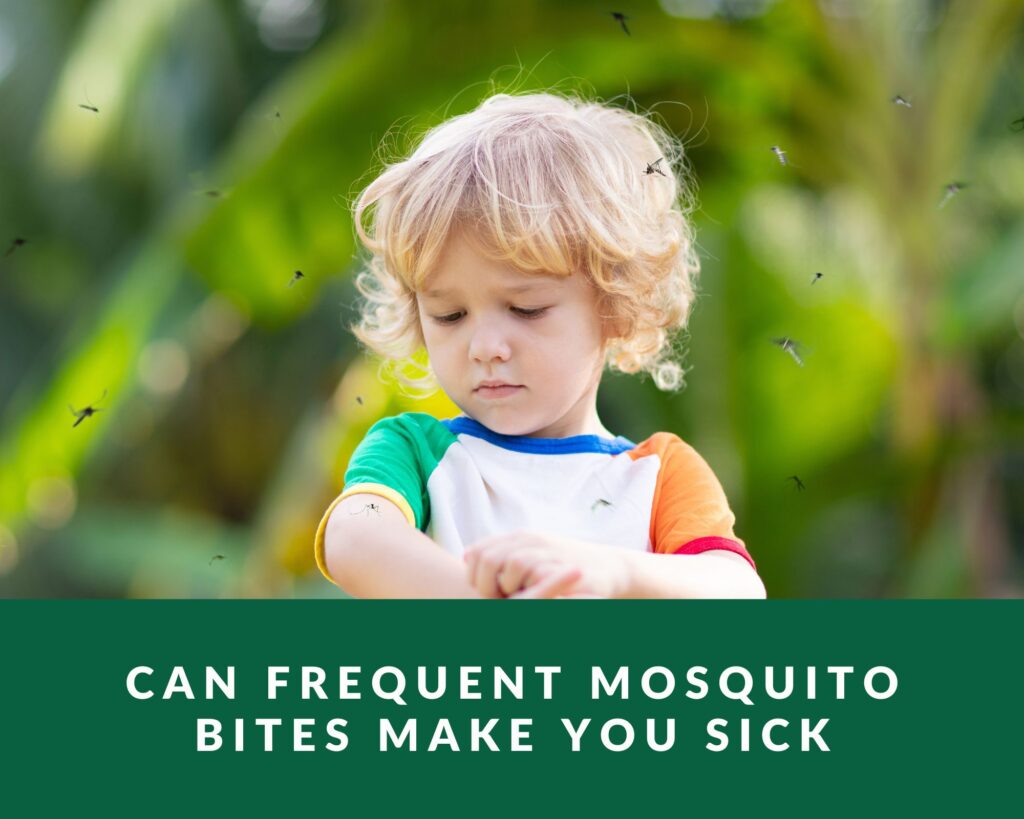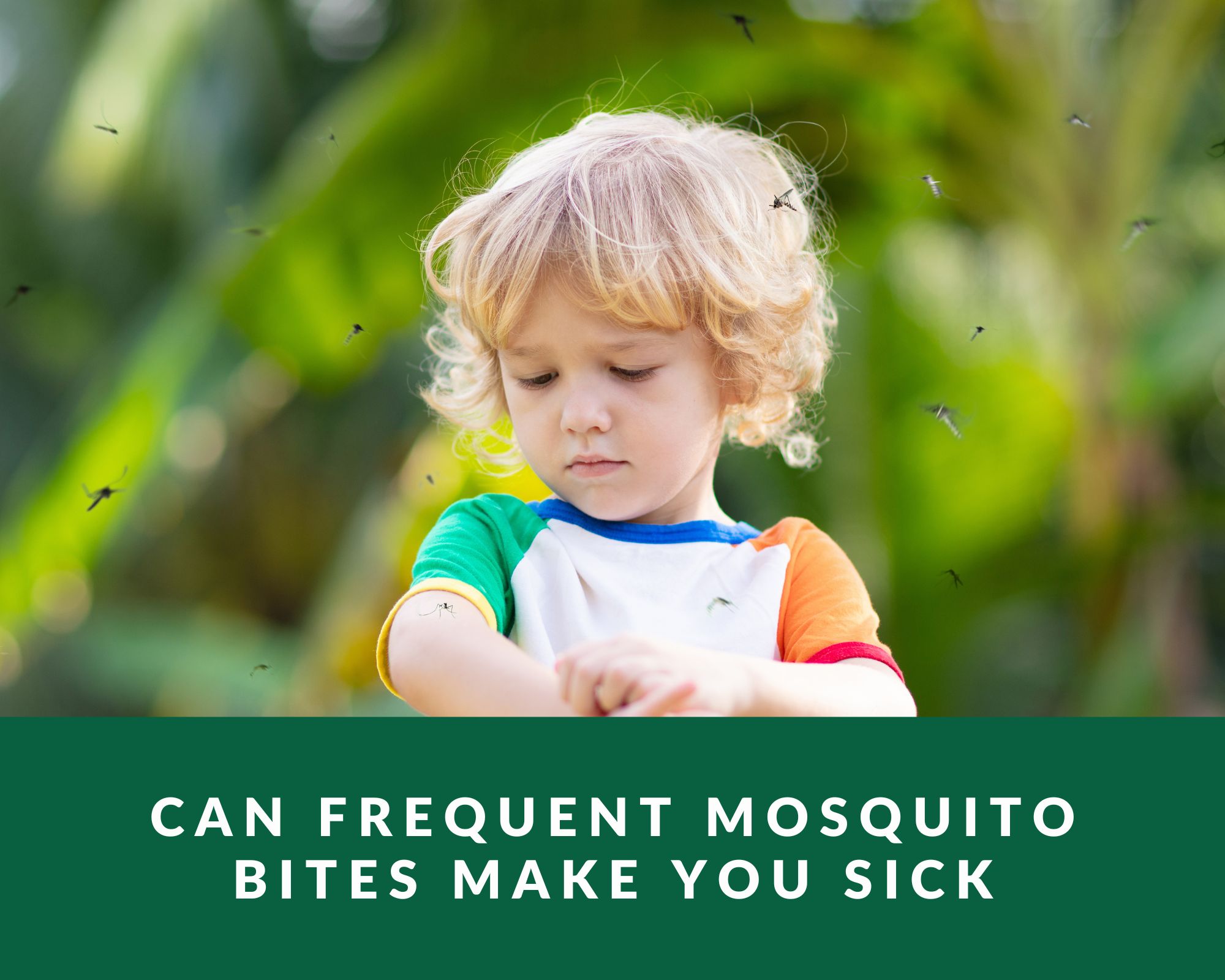
Can frequent mosquito bites make you sick
Sometimes a mosquito bite is only an irritating itch that goes away on its own in 24 hours. But occasionally, a female mosquito will bite a person and expose them to a dangerous or even fatal illness in addition to sucking their blood.
You may not even link your headache or fever to the infected mosquitoes you received three days earlier because mosquito bites are typically only a minor discomfort.
Hence, this is the actual question. Can mosquito bites make you sick? This article contains information on this and other subjects.
Why do mosquito bites expand
According to Cleveland Clinic, your body recognizes mosquito saliva as an allergy when it enters your bloodstream as saliva. Afterward, two tubes are introduced into the blood vessel or capillary, one of which is used to suction up saliva and the other of which is used to draw blood from the patient.
Blood can flow more easily because of the anticoagulant (blood thinner) effects of saliva. The saliva’s proteins trigger an immunological response in humans that manifests as painful itching. This makes it easy for mosquito bites to spread.
What happens if mosquitoes bite you too much?
Having too many mosquito bites might have a number of negative effects. The biggest worry is the potential for a systemic response, which can include lethargy, fever, chills, headaches, and body pains. In addition, a number of dangerous infections, including the West Nile virus, the Zika virus, malaria, and dengue fever, may be spread by mosquitoes.
Can mosquito bites make you sick?
Yes, frequent mosquito bites can make you sick. Through biting, mosquitoes transmit bacteria. You can get sick from parasites like malaria and viruses like West Nile and dengue fever. When a mosquito bites an infected human or animal, it contracts the virus or parasite and becomes contagious.
By biting, the infected mosquito can transmit bacteria to humans and animals. Not every person who contracts a virus from a mosquito becomes ill.
What are the diseases caused by mosquitoes
There are several diseases that mosquitoes spread. These illnesses may be bacterial, parasitic, or vector-borne. In tropical regions, diseases are carried by mosquitoes most quickly. Some of the serious ailments brought on by a mosquito bite include:
Malaria
One of the chronic illnesses that affect people is malaria. One of the most well-known illnesses spread by mosquitoes in India is this one. It is brought on by the Plasmodium parasite, which causes malaria.
There are four different forms of Plasmodium parasites that cause malaria:
- P. falciparum
- P. vivax
- P. ovale
- P. malariae
There is a real risk to your life if you do not receive treatment for malaria. Nonetheless, malaria medications are widely accessible in most regions. In European countries, malaria has almost completely disappeared, but it is still a major problem in nations that are located between tropical areas.
Some typical malarial signs and symptoms include:
- Fever
- Severe to very severe chills
- Coughing and vomiting
- Diarrhea
- Muscular and articular pain
Dengue fever
The majority of cases of dengue, a mosquito-borne illness, occur in tropical and subtropical regions. Dengue is caused by four different types of viruses, all of which are spread by mosquitoes. Female Aedes aegypti mosquitoes are to blame for the majority of dengue cases.
They propagate the dengue virus by feeding and interacting with dengue patients. Being around a dengue-affected individual won’t cause you to catch the disease. You will gain lifelong immunity to just that one virus after contracting dengue from any of the four viruses, but not to the other three.
Another prevalent illness brought on by mosquitoes is dengue. Depending on the type of infection and its intensity, the symptoms of the diseases spread by mosquitoes change.
Symptoms of dengue include:
- Joint, muscle, and bone discomfort
- Nausea and diarrhea
- Terrible headache
- Hurting eyes
- Enlarged glands
An obvious sign of severe dengue is when the virus damages blood vessels and lowers the blood’s platelet count. This is sometimes referred to as dengue shock syndrome or hemorrhagic fever. The most severe type of dengue can cause some serious hemorrhage, respiratory problems, and even death.
Zika virus
The Aedes mosquito species is the primary vector for the Zika virus. Mosquitoes of this kind can be found all over the world. Most often, those bitten by these mosquitoes would not exhibit any symptoms.
Nonetheless, certain people, particularly pregnant women, may suffer negative effects from this infection. Those who have the zika virus have the following symptoms:
- Especially in the hands or feet, joint discomfort
- Fever / Rashes
- Eye color
- Continent pain
- Drowsiness and discomfort
- Hurting eyes
Yellow fever
The mosquito Aedes aegypti, which also spreads dengue, is the vector of the viral illness yellow fever. The majority of those who have this virus do not exhibit any symptoms.
But, in the worst conditions, both the condition and its symptoms may deteriorate. One of the common diseases is brought on by a mosquito bite and can afflict both people and monkeys.
As the infection worsens, important organs such as the heart, liver, and kidney are impacted. Yellow fever patients may exhibit some of the following signs and symptoms:
- Back and knee muscles are sore.
- Fever
- Headache
- nausea and diarrhea
- Dizziness
- Reduced appetite
West Nile virus
West Nile virus is spread by the Culex mosquito and can be found in Africa, North America, West Asia, Europe, and the Middle East. The West Nile virus is often lethal. The virus’s most severe variant can cause the following symptoms:
- Headache
- Fever
- rigid neck
- Confusion
- Convulsions
- Muscle deterioration
When should you worry about a mosquito bite?
When a person has a more severe allergic reaction or if the bite develops an infection, mosquito bites become worrisome. The most frequent allergic reaction, Skeeter syndrome, is normally moderate but can turn serious when the swelling gets out of control and impairs movement, vision, or eating and drinking.
If this happens, it’s crucial to call your doctor right once since possible treatment options include prescription corticosteroids.
How to prevent mosquito bites
Preventing a mosquito bite is the best defense against a disease carried by mosquitoes. With the exception of yellow fever, there are no effective antiviral medications or vaccines to prevent these illnesses. How to avoid getting bitten by mosquitoes at home
- Utilize doors and windows with screens.
- Bedside mosquito netting
- To lessen mosquito breeding places, empty containers around the house and yard of any standing water.
The best course of action outside is to:
- Use a mosquito repellent that contains an active ingredient while following the usage directions.
- Long sleeves and slacks should also be worn to reduce skin exposure.
- Apply insect repellent. However, there are ways to prevent mosquito bites without repellents.
- Avoid being outside at mosquitoes active hours to lessen your likelihood of getting bitten.
Conclusion
If you have an allergic reaction to a mosquito bite or exhibit symptoms of an illness spread by mosquitoes, you should consult a healthcare professional. See your healthcare physician if you get symptoms after traveling to an area where mosquito-transmitted diseases are prevalent.

